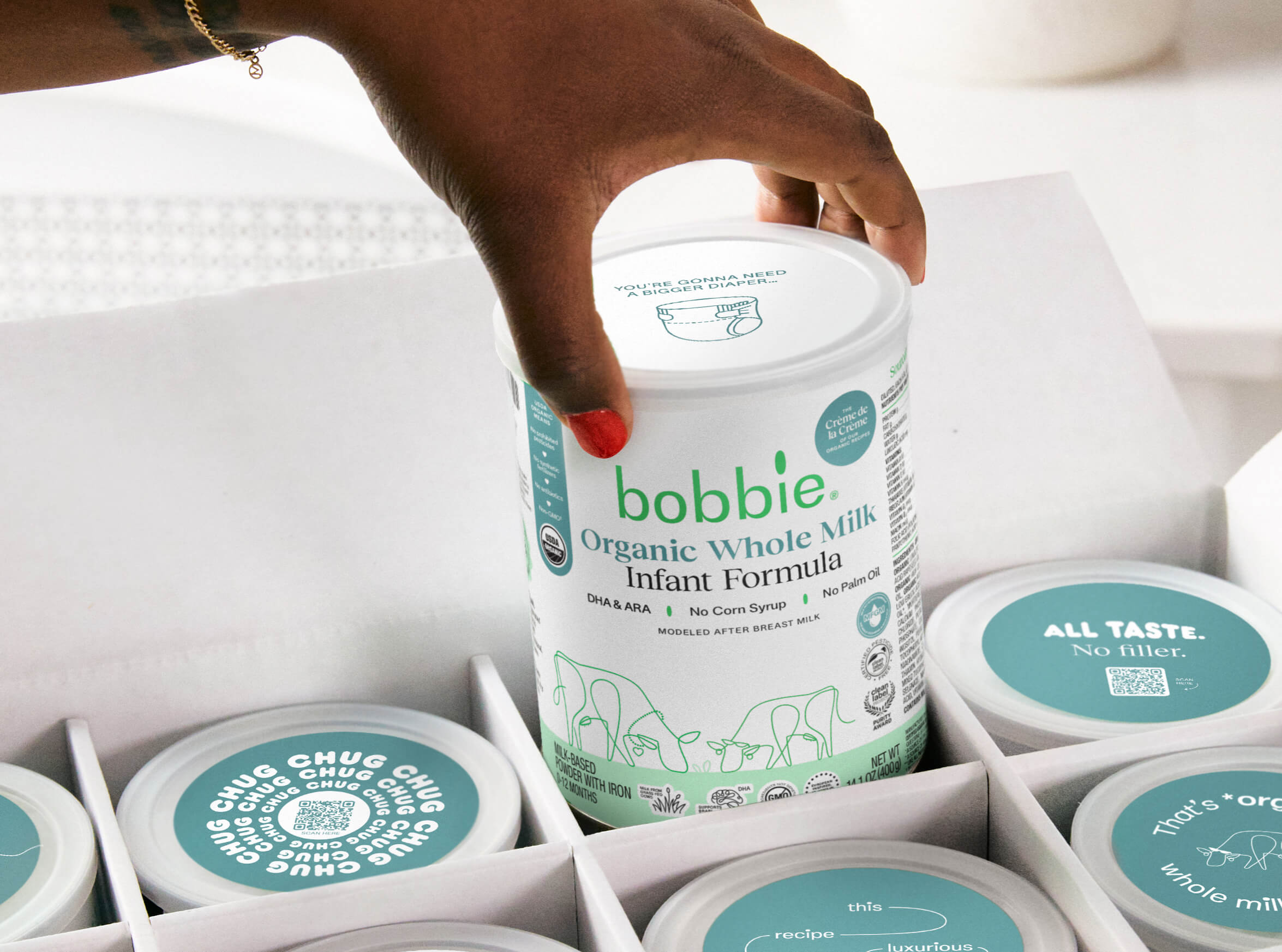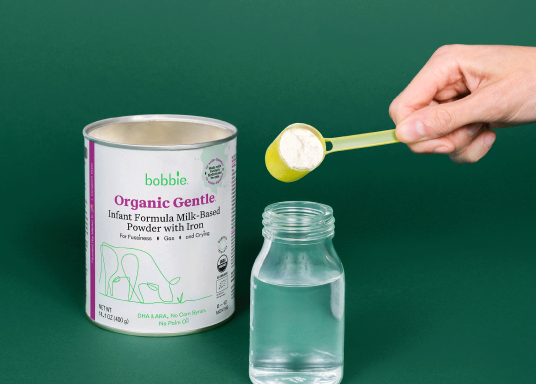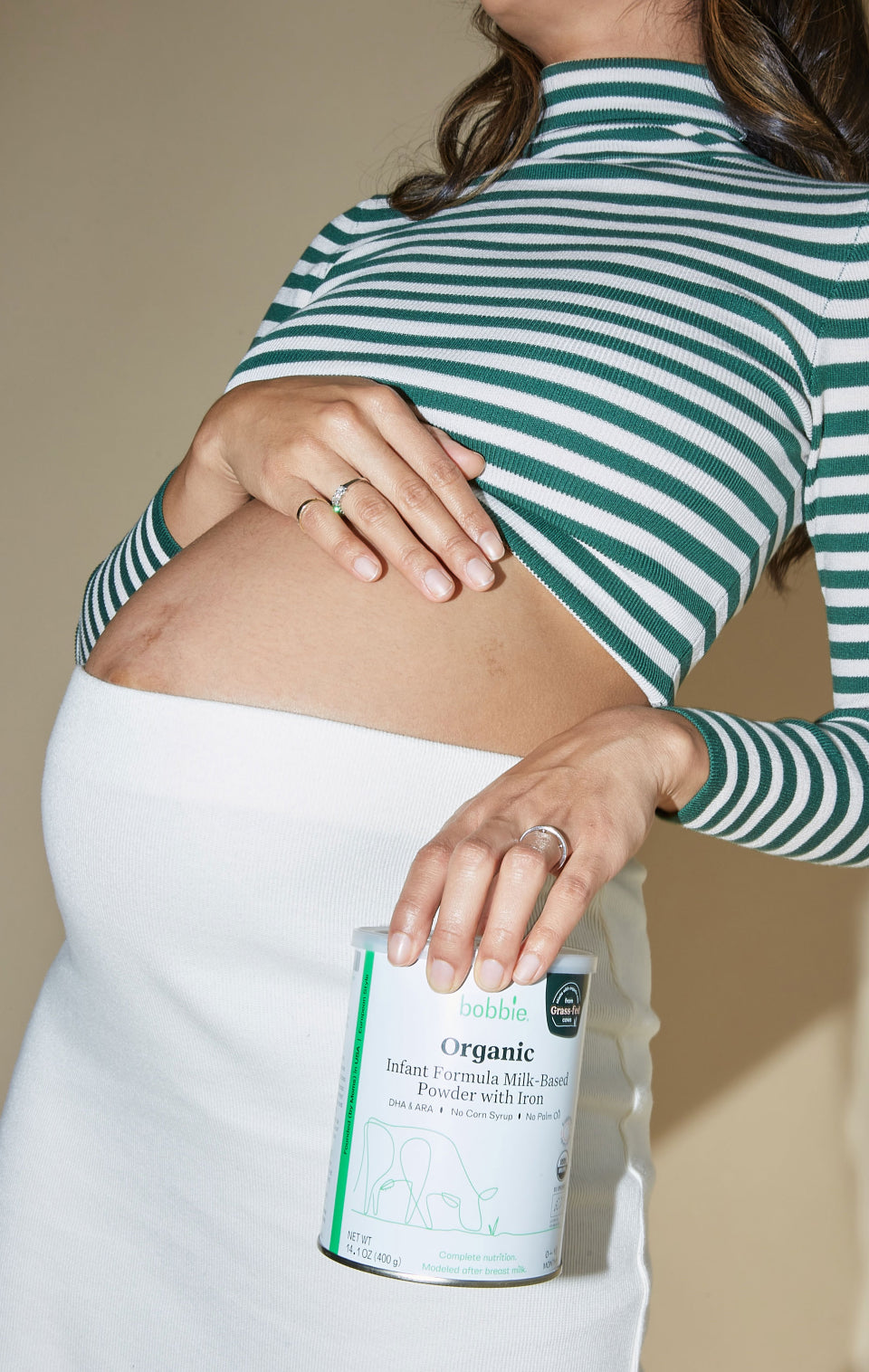Published June 2, 2025

When Does Morning Sickness Start?
Pregnancy is an incredible time, but it’s also a time of big changes — and let’s be honest, sometimes not-so-glamorous ones too. If you’re already feeling queasy, you’re not alone. Morning sickness is one of the most common early pregnancy symptoms, even though it doesn't always wait for the morning to show up.
It’s one of those signs that things are moving along just as they should — but that doesn’t mean you have to just grin and bear it.
Knowing when morning sickness starts, what causes it and how to find relief can make a real difference in how you feel. And that’s exactly what we’ll dive into here.
What Is Morning Sickness, and What Triggers It?
Morning sickness is that classic combination of nausea (and sometimes vomiting) that shows up during early pregnancy. It’s such a hallmark sign that for some, it’s the first tip-off that they’re expecting.
But despite the name, pregnancy nausea can strike in the afternoon, evening or middle of the night. (Sometimes all three.)
So, what causes morning sickness?
There’s still a bit of mystery around what causes morning sickness, but here’s what we know so far:
-
Hormonal changes: Rising levels of hCG and estrogen seem to be a big trigger.
-
Sensitivity to smells and certain foods: If your favorite coffee or shampoo suddenly makes you gag, blame those heightened senses.
-
Evolutionary theory: Some researchers believe morning sickness symptoms evolved to protect developing babies from toxins.
-
Other factors: Stress, a history of motion sickness, carrying multiples or previous intense pregnancy sickness can all make nausea symptoms feel worse.
It’s not fun, but it's (usually) a sign that your body is adjusting to all the changes needed for a healthy pregnancy.


Your go-to resource for all things new baby.
Sign up to get the scoop on feeding, sleep, poop, and so much more.
By singing up for email, you are to receive marketing emails from Bobbie and can manage your email preferences or unsubscribe at anytime
When Does Morning Sickness Start and End?
Wondering when you might start feeling queasy and when it might ease up? Let’s walk through the timeline. Like almost everything in pregnancy, morning sickness has a pattern — but it can vary a little from person to person.
When does morning sickness start?
For most pregnant women, morning sickness starts around week 6 of pregnancy. But it’s not unusual to experience nausea as early as week 4 — sometimes even before a missed period.
That early queasy feeling is one of the classic early pregnancy symptoms, right up there with tender breasts, extra fatigue and feeling just a little "off." Some people describe it as waves of seasickness, while others feel a persistent, low-grade nausea that comes and goes throughout the day.
When does morning sickness peak?
The morning sickness peak usually hits between weeks 9 and 11. This is often the rough patch, when smells, textures and even certain rooms in your house can feel like too much.
Knowing the peak is coming (and that it will eventually pass) can help you prepare a little and be extra kind to yourself during the hardest stretch. It's also a great time to focus on gentle foods, small wins and lots of rest.
When does morning sickness end?
For most, morning sickness symptoms begin to ease by week 12 or 14. (Cue the sigh of relief.) But for a small number of pregnant people, nausea and vomiting can linger longer — sometimes throughout the entire pregnancy — especially in cases of severe morning sickness like hyperemesis gravidarum.
If you're still struggling in your second trimester, you’re not alone — and it’s absolutely worth talking to your doctor about support options like medications, IV hydration or nutrition planning. Feeling better is a goal you deserve to pursue.
Ways To Find Relief From Morning Sickness
You don’t have to just "tough it out." While morning sickness is common, that doesn’t mean you should suffer in silence.
There are real, practical ways to make pregnancy nausea more manageable — and even small changes can sometimes offer big relief.
Dietary changes
-
Eat small, frequent meals throughout the day rather than three large ones. Keeping your stomach from getting completely empty (or too full) can help stabilize nausea symptoms.
-
Keep dry toast or crackers nearby — by your bedside, in your bag or your car — so you can nibble a little before getting up or moving around.
-
Stay hydrated with regular sips of water, clear broths or electrolyte drinks. For some, cold beverages go down easier than warm ones.
-
Choose gentle foods like bananas, rice, applesauce, potatoes and plain cereals. Avoid spicy, greasy or overly sweet foods, which can trigger or worsen nausea symptoms.
-
Ginger is a classic morning sickness remedy backed by research. Try ginger tea, ginger chews or ginger capsules — whatever feels easiest to tolerate.
A lot of managing pregnancy sickness is learning your personal triggers — and trusting yourself to listen to what your body needs in the moment.
Lifestyle adjustments
-
Rest when you can. Fatigue makes nausea harder to handle. Short naps or early bedtimes are not just allowed — they’re encouraged.
-
Avoid strong smells (cooking odors, perfumes, cleaning products) and stuffy environments. Fresh air can work wonders.
-
Lower stress levels through short mindfulness exercises, gentle walks, deep breathing or simply saying no to non-essential activities.
You’re growing a human — your to-do list can wait.
Alternative remedies
-
Vitamin B6 supplements are often recommended by healthcare providers for easing severe nausea. It’s a safe, simple option that many find helpful when food alone isn’t cutting it.
-
Some people also find motion sickness bands (acupressure wristbands) effective. These press on a specific point on the wrist that may naturally reduce queasiness.
As always, check with your doctor before starting anything new, but there are a lot of gentle, low-risk options to explore.
Prenatal vitamins
If your prenatal vitamin seems to make nausea worse, you're not imagining it. Try taking it at night, with a light snack like crackers or yogurt, to make it easier on your stomach. Some women also switch to gummy vitamins temporarily, although you’ll want to ensure they still meet your nutrient needs.
For more ways to feel supported and stay organized during pregnancy, check out The Best Apps for New and Expecting Moms.
When to see a doctor about morning sickness
Morning sickness usually passes on its own, but it’s important to know when to reach out for extra help.
Contact your healthcare provider if you experience:
-
Signs of dehydration, such as dark urine, dizziness or dry mouth.
-
Inability to keep down food or liquids for more than 24 hours.
-
Severe vomiting multiple times per day.
-
Symptoms that persist well into the second trimester.
Conditions like hyperemesis gravidarum — a form of extreme morning sickness — aren't something you should try to "push through." Medical support, hydration therapy and sometimes medication can make an enormous difference.
You deserve to feel cared for during this time, not just endure it.
Morning Sickness FAQs
Can morning sickness happen before you miss your period?
Yes. Some pregnant women start noticing nausea or subtle pregnancy sickness even before confirming their pregnancy.
What does morning sickness feel like?
It can feel like queasiness, a sour stomach or waves of nausea that come and go. For some, it can lead to vomiting, too.
Do you have to experience morning sickness to have a healthy pregnancy?
Not at all! Even though many women experience morning sickness, skipping it doesn’t mean anything’s wrong.
Are there habits that can make morning sickness worse?
Skipping meals, becoming dehydrated or exposure to strong smells can worsen pregnancy-related nausea.
Are there any long-term effects of morning sickness?
Mild to moderate morning sickness doesn’t usually cause problems. Severe symptoms, like untreated hyperemesis gravidarum, might need careful medical monitoring to protect amniotic fluid levels and prevent pregnancy loss — but with treatment, outcomes are overwhelmingly positive.

Shop Bobbie Baby Formula
Bobbie infant formulas are clean, EU-style infant formulas that meets all FDA requirements. They are complete nutrition, milk-based powder, modeled after breast milk and is easy on tummies. They are all non-GMO and do not have corn syrup, palm oil, or maltodextrin. Shop Bobbie today!

Morning Sickness Relief and Beyond
Feeling sick when you’re supposed to be celebrating isn’t fair, but morning sickness doesn’t last forever.
By understanding the causes of morning sickness and making small, strategic changes to your routine, you can get through the rough patches and focus on what matters most: your growing baby.
And when you get to the feeding stage, Bobbie will be here too, ready with clean-label, organic infant formula options that are crafted to nourish your little one, without compromise. Because support for a healthy pregnancy — and a healthy baby — should never be complicated.
Shop Bobbie to explore trusted, parent-designed options for every step of the journey.
The content on this site is for informational purposes only and not intended to be a substitute for professional medical advice, diagnosis or treatment. Discuss any health or feeding concerns with your infant’s pediatrician. Never disregard professional medical advice or delay it based on the content on this page.








